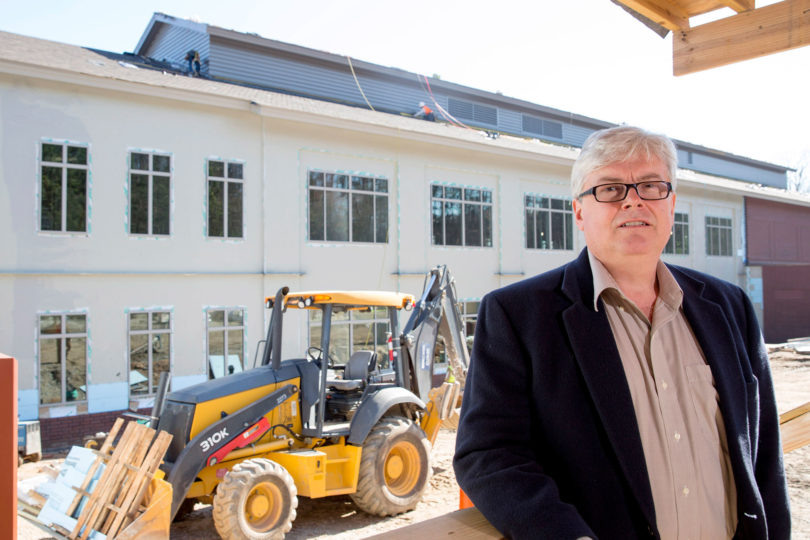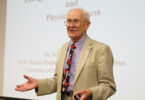The University of Georgia is pushing into new frontiers of biomedical research. A new home for this effort, the Center for Molecular Medicine, is under construction and anticipated to open in the fall.
When complete, the 43,000-square-foot research facility will host teams of scientists working to uncover new treatments for such maladies as obesity, cardiovascular disease, diabetes and neurological disorders.
“The research emphasis of the center is to study different aspects of human disease and use that information to develop therapeutics and diagnostics,” said Stephen Dalton, director of the center and a GRA Eminent Scholar of Molecular Cell Biology.
Researchers will explore diseases at the molecular level to understand the effects of drugs and genes.
“The emphasis is on translating this information into something practical and useful that can impact the health of people in Georgia and beyond,” Dalton said.
The building’s design allows for flexibility, anticipating both the present and future needs for research equipment to ensure the investment will pay off decades from now.
The center, which broke ground December 2015, will be adjacent to the Complex Carbohydrate Research Center on Riverbend Road. The proximity between the two centers is aimed to encourage cross-disciplinary interaction between investigators—often a recipe for research success. The center will also be a training ground for graduate and undergraduate students to become the next generation of biomedical scientists.
David Lee, the UGA vice president for research, called the CMM an expansion of the university’s commitment to solving global challenges through translational research.
“The University of Georgia has a strong tradition of transforming research into products and innovations that improve lives and advance economic development in Georgia and beyond,” Lee said. “The Center for Molecular Medicine will continue that tradition by expanding our knowledge of human diseases and finding new ways to diagnose, prevent and treat them.”
Supported by the Board of Regents of the University System of Georgia, Gov. Nathan Deal and the General Assembly provided $17 million in state funds for the new building, and these funds were matched by $8 million in nonstate funds, bringing the total project cost to $25 million.
The center was announced in 2012, with Dalton as the founding director. The center is expected to house around 10 faculty research groups once recruitments are completed.







